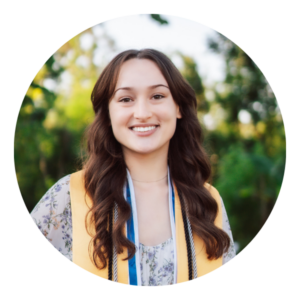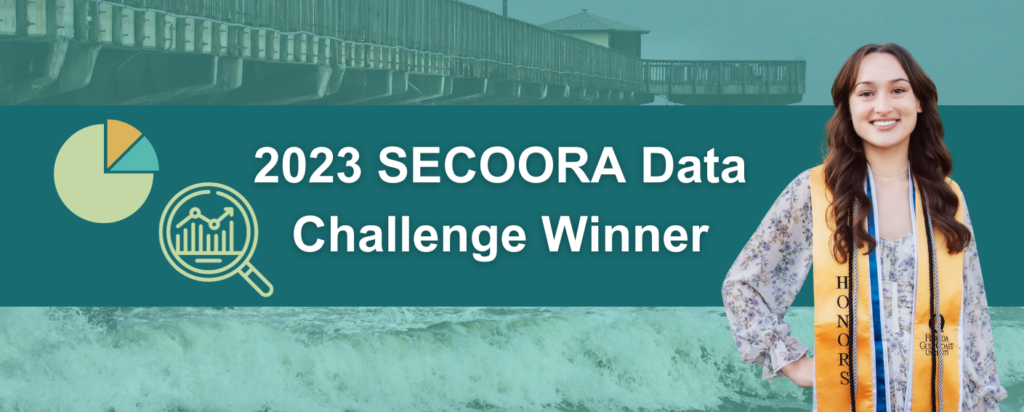
The Southeast Coastal Ocean Observing Regional Association (SECOORA) Data Challenge is a funding opportunity that invites undergraduate students, graduate students, and early career professionals to develop a project that combines multiple Southeast datasets to understand a coastal and/or ocean event or trend.
Kaylee Mooney (Florida Gulf Coast University) is the winner of this year’s challenge. Read more to learn about her project and hear from Kaylee about her plans for this award.
Implementing Vulnerability into Historic Hurricane Normalizations
Project team: Kaylee Mooney (Florida Gulf Coast University) Dr. Philip Klotzback (Colorado State University), Dr. Tom Philp (Maximum Information), Dr. Joanne Muller (Florida Gulf Coast University)
Academic Advisor: Dr. Joanne Muller (Florida Gulf Coast University)
Project Abstract
To compare historic event losses, they must be “normalized” so that the direct economic losses at the time can be understood in the context of today’s contemporary societal conditions. However, the current normalization methods do not account for vulnerability. Vulnerability in the risk industry takes into account intrinsic characteristics of a system that create the potential for harm but are independent of the risk of any hazard or extreme event (Sarewitz et al., 2003). Vulnerability, in the context of this project, involves determining how the variability of the amount, size, price, and building code of housing structures impacts hurricane losses. Current normalization equations assume all housing structures existing in 2022 are built the same as they were in the year of the storm that is being normalized. This is an issue because buildings today are not as vulnerable as they were in the past. This study highlights the need for the addition of vulnerability into these equations by considering the changes and improvements in building code that the U.S. has seen through time. The vulnerability adjustment will be beneficial to the normalization of hurricane losses because it will provide a much more realistic picture of future hurricane losses.
“I am incredibly honored to have been chosen by SECOORA as a recipient of the Data Challenge Award! The resources that SECOORA provides on their data portal are and have been essential to the progress of implementing vulnerability into our normalized loss calculations of U.S. landfalling hurricanes. I am very excited for the opportunity to work alongside SECOORA in making our risk data accessible to the public as the catastrophe risk industry currently is largely privatized. This collaboration supports the exciting possibility of implementing a platform that will allow our valuable data to be utilized to hopefully protect populations at risk.”
Kaylee Mooney, Florida Gulf Coast University
Related news
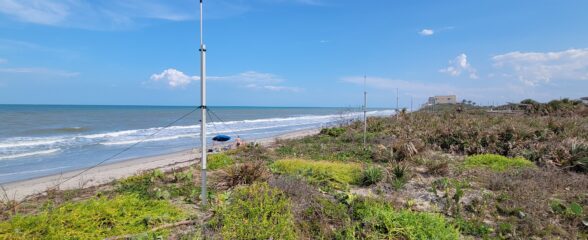
Measuring Surface Currents on the East Coast of Florida with High Frequency Radars
The Florida Institute of Technology and UGA Skidaway Institute of Oceanography recently installed four high frequency radars on the east coast of Florida. These systems measure the speed and direction of ocean currents, which is helpful for search & rescue operations and tracking marine debris.
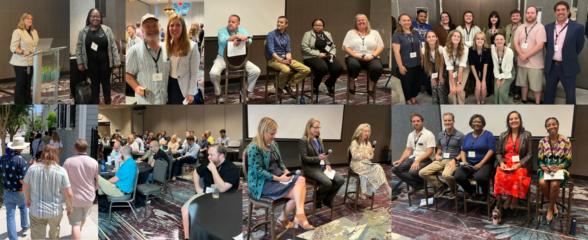
The 2024 SECOORA Annual Meeting: A Huge Success!
The SECOORA Annual Meeting was held in Charleston, South Carolina May 7th - 8th. Thank you to those who attended, we hope to see you again next year!
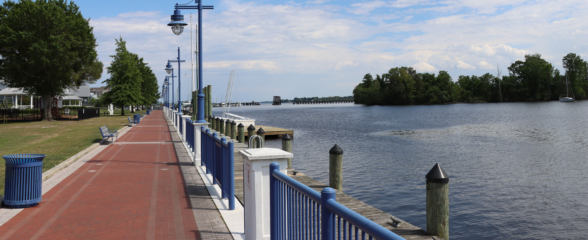
SECOORA Partners with North Carolina Communities to Install New Water Level Sensors
SECOORA has partnered with North Carolina Public Safety, Beaufort County Emergency Services, and the town of Belhaven to install new water level stations in two flood-prone North Carolina communities.
